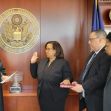Last week, a federal judge in Texas backed a challenge to a nationwide ban on noncompete agreements, which restrict employees from joining rival firms. The ruling came shortly after the U.S. Supreme Court expanded judicial authority to challenge federal agencies' rule-making power, affecting the Federal Trade Commission’s (FTC) proposed ban on noncompete clauses, which is set to take effect in September.
Judge Ada Brown, appointed by former President Donald Trump in 2019, ruled that the plaintiffs challenging the FTC's ban will likely prevail, arguing that the FTC lacks statutory authority to enforce such a ban and that the rule is overly broad. The ban, she noted, “imposes a one-size-fits-all approach with no end date.” Her injunction currently applies only to the plaintiffs— a Dallas-based tax-services firm, the U.S. Chamber of Commerce, and other business groups— and is expected to have minimal immediate impact. A final decision on the lawsuit’s merits is anticipated by Aug. 30, just days before the rule’s Sept. 4 implementation deadline.
Adding to the complexity, a separate case in Pennsylvania, overseen by a Biden-appointed judge, will see a ruling on a similar request for an injunction by July 23. This case involves a tree-trimming business challenging the same FTC rule. The outcomes of these cases could create a protracted legal tangle that may take years to resolve.
Noncompete clauses are typically used to prevent departing employees from sharing trade secrets or proprietary information with new employers or from using such information to start competing businesses. These clauses usually apply for a set period, often one or two years, or within a specific geographic area.
According to the FTC, nearly one in five U.S. workers, or about 30 million people, are bound by noncompete clauses in their employment contracts. In its April rule, the FTC argued that noncompete clauses suppress wages, hinder new business formation, and prevent companies from hiring the workers they need for growth.
“The FTC stands by our clear authority, supported by statute and precedent, to issue this rule,” FTC spokesman Douglas Farrar said following Judge Brown’s decision.
Noncompete clauses have been prevalent in contracts for executives, salespeople, scientists, and others with access to sensitive information. However, they have gradually been applied more broadly, affecting blue-collar workers such as janitors, baristas, hair stylists, schoolteachers, and entry-level employees, raising concerns among regulators and labor advocates.
The Texas case gained momentum following a recent Supreme Court decision that shifted power away from federal agencies. In a 6-3 ruling authored by Chief Justice John Roberts, the court abandoned the Chevron deference doctrine. Established in a 1984 case, Chevron deference required judges to defer to federal agencies' interpretations of ambiguous laws, provided those interpretations were reasonable. Roberts asserted that the approach was “fundamentally misguided” and directed lower courts to exercise independent judgment in determining whether agencies acted within their statutory authority.






